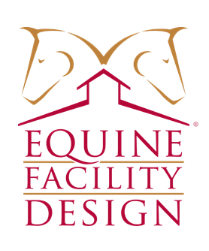Buying a horse: For many, it’s a childhood dream- but when the time comes, there is a lot of research, legal and financial considerations. Asking the right questions, budgeting for unexpected expenses, and weighing the pros and cons may go a long way in having a successful adventure with your new companion.
Initial research: The initial research phase will help you determine what breeds and characteristics to look for in your future horse. Depending on your riding goals, whether you wish to compete, ride for leisure, or if you want to use your horse for breeding, you will be able to narrow down your research and browse through a plethora of different channels for your perfect horse. Online selling platforms such as www.ehorses.com are a popular option as you can filter through specific breeds, age, and even coat color. Other ways to conduct research include inquiring at your local riding center or by researching breeding facilities directly. Deciding where you will keep your horse is another important part of the initial research. You may have enough space at home, or perhaps you may choose to leave your horse at a boarding stable. Either way, you should ensure the location will provide your horse with enough space and turnout time during the day. Finally, time commitment is a major consideration, and it is important to work out who can care for your horse when you are away.
Budgeting: Perhaps one of the most important considerations as horses are notoriously known for breaking the bank when it comes to their upkeep and regular health checks. Buying a horse means ensuring you can afford to pay monthly expenses, including feeding, vet bills, boarding (if needed), as well as tack and other equipment. Some boarding stables offer a full care package with feeding and stall cleaning, while in other cases you may have to do the feeding and bedding yourself. If your horse is shod, they will require a farrier check every six to eight weeks. Similarly, your horse will need vaccinations and dental checkups every year, as well as de-worming on a regular basis. You may wish to opt for an insurance policy, as other unexpected health costs may also arise. Health bills can add up quickly- and before you know it, you may find yourself spending a lot more than expected!
Test ride: Once you have done the initial research and a particular horse has caught your eye, you will need to arrange to meet him! Riding and seeing the horse ridden by someone else will help you get a closer look at their movement, balance, and see if there is adequate muscling or if the horse is lacking training. As you meet your potential new horse, there are some important questions you must not forget to ask their current owner. For example, can the horse load into a trailer? What is he like to handle? How is he with other horses? It is also worth asking why the current owner wants to sell the horse. How many previous owners did the horse have? Is there a history of abuse or any trauma? Do they have vices or bad habits? Has the horse ever needed a specific treatment?
Soundness check: A soundness evaluation is critical in making the final decision. You will want to make sure to get both a vet and a farrier check. A vet will check for potential lameness or any evidence of pain in the body. An ultrasound may be required to relieve any doubts. A thorough farrier check will also look for any potential issues with the hooves, including the less obvious ones that may arise in the future.
Transaction and Proof of Ownership: Once you have made up your mind about which horse to buy- thoroughly inspect the registration papers and current proof of ownership, as well as the pedigree and physical characteristics including age, coat color, and markings to make sure it is the correct horse. Finally, make sure to draw a contract to iterate the terms of the sale, and to ensure that the seller is accountable in case of failing to disclose relevant information.
Owning a horse is a long-term commitment which will bring many changes and require adjustments in your life. Sometimes, alternatives such as leasing, or co-ownership may better suit your lifestyle and reduce the cost of care. Most importantly, it can give you a chance to ease into the full experience of ownership and determine if it is the right choice for you. Due diligence and research are important to ensure the right decision is made based on your situation and allow a thriving partnership with your horse.


